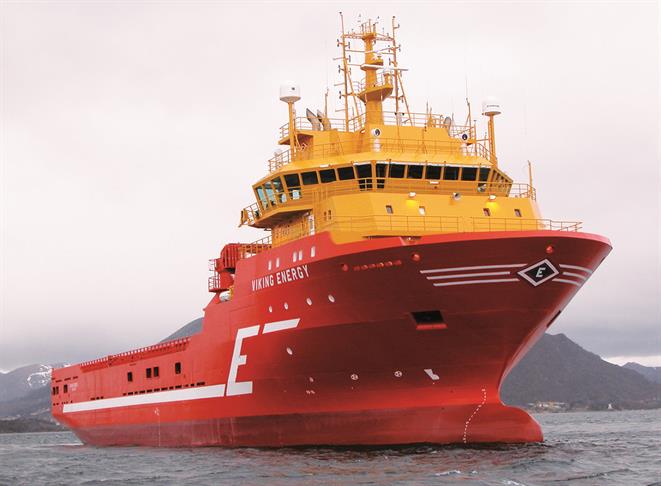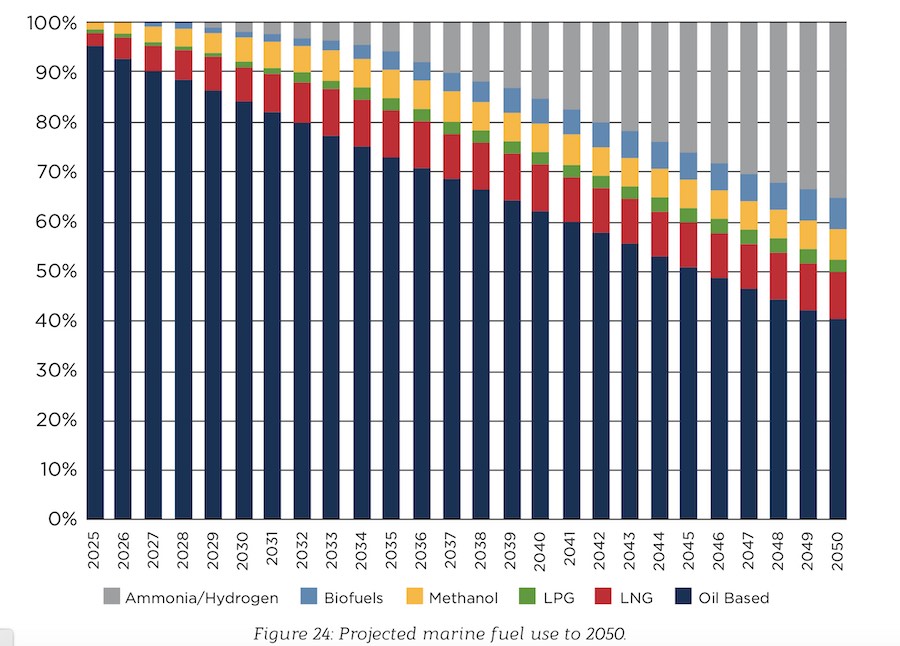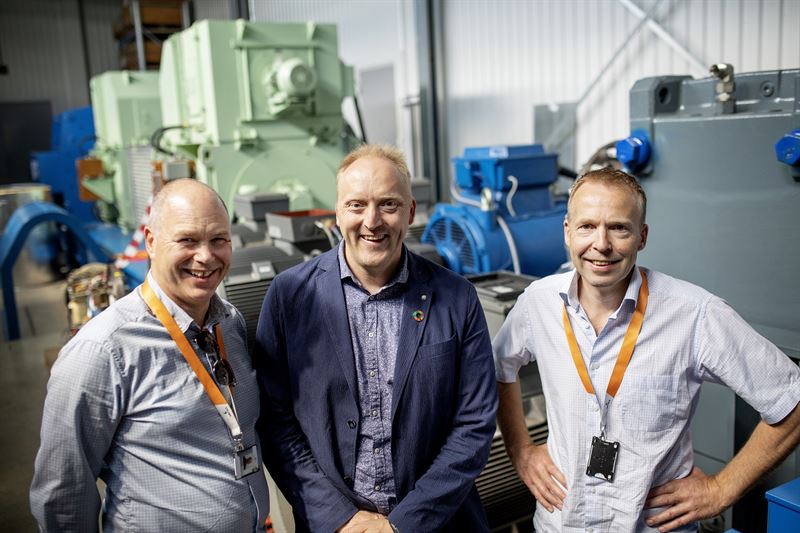The project leaders pictured at the Sustainable Energy Catapult Centre’s test facility at Stord, Norway from left to right: Egil Hystad, Wärtsilä, Willy Wågen, Sustainable Catapult, and Kjell Storelid, Wärtsilä.
Ammonia is promising as a carbon-free fuel for marine applications, in view of the maritime industry’s need to fulfil the International Maritime Organisation’s vision of reducing greenhouse gas emissions from shipping by at least 50 percent by 2050. Furthermore, ammonia has huge potential for providing green energy to remote power systems, such as offshore installations on the Norwegian Continental Shelf.
Development work by Wärtsilä, as it prepares for the use of ammonia as a fuel, continues with this testing programme, which will be the world`s first full-scale four-stroke combustion engine test. The project will commence in the Sustainable Energy Catapult Centre’s testing facilities at Stord, Norway during the first quarter of 2021.
“We are really excited to further develop and understand the combustion properties of ammonia as a carbon-free fuel in one of our multi-fuel engines,” says Egil Hystad, General Manager, Market Innovation at Wärtsilä Marine Business.
“Ammonia storage and supply systems will be designed and developed for maximum personal safety, and in parallel with the Fuel Gas Handling System under development as part of the EU project ShipFC. This project is coordinated by NCE Maritime CleanTech, and it involves an ammonia driven fuel cell which will be tested on the Eidesvik Offshore supply vessel, Viking Energy,” Hystad continues.

“This is a great example that illustrates the importance of dedicated petroleum R&D,” said Tina Bru, Norway’s minister of petroleum and energy, adding, « Know-how from this project will also provide important input to the development of regulations for the use of ammonia and other low-carbon fuels”
Wärtsilä, as part of its development work on future fuels, has studied the use of ammonia as a future carbon-free fuel through the ZEEDS initiative. The company’s first ammonia combustion tests were commenced in Vaasa, Finland, in winter 2020, and will continue with this long-term testing at the Sustainable Energy Catapult Centre facilities in Stord.
“We are extremely pleased to be part of this project that will prove for the industry the robustness of ammonia as fuel. The project confirms our test facilities’ and Norway’s leading position within the testing and development of solutions for the use of maritime carbon-free fuels,” says Willie Wågen, CEO of Sustainable Energy Catapult Centre. The centre is part of the Norwegian Catapult programme that facilitates a national infrastructure for innovation. The programme is run by SIVA in close cooperation with Innovation Norway and the Norwegian Research Council and financed by the Norwegian Ministry of Trade, Industry and Fisheries.
The full-scale fuel testing programme can pave the way for ammonia engines to be used in real vessel operations within a few years, and several shipowners have shown interest in this possibility. It will also provide important insights into the long-term effect of ammonia fuelled engines in relation to other systems and components in a vessel, including the required safety measures.
“A future implementation of ammonia as a carbon-free fuel, combined with clean energy production from offshore wind or other renewable energy sources can be the start of a new industrial era for the Norwegian industry,” Egil Hystad explains.
“The Norwegian culture of collaboration and knowledge sharing across different companies and sectors is a great support in closing big technology gaps. The assistance, cooperation and funding from governmental institutions are essential to drive the change towards a carbon-free future,” he continues.
Developments for ammonia have been multiplying in recent months.
In January, Malaysia’s shipping group MISC Berhad, South Korean shipbuilder Samsung Heavy Industries (SHI), the UK’s classification society Lloyd’s Register (LR) and Germany’s engine manufacturer MAN Energy Solutions have decided to work together on a joint development project (JDP) for an ammonia-fuelled tanker to support shipping’s drive towards a decarbonized future.
In October 2019, Maersk, the world’s largest container line, published a study with Lloyds Register, which confirms that the best opportunities for decarbonizing shipping lies in finding new sustainable energy sources. Based on market projections, the best positioned fuels for research and development into net zero fuels for shipping were identified as alcohol, biomethane, and ammonia.
Furthermore, in April this year, Class society ABS published a tech-savvy 103-page new fuels guide, in which the use of ammonia as a fuel is projected to grow dramatically because of easier distribution, storage and bunkering compared to hydrogen, its zero-carbon content and its suitability with existing and emerging technologies for propulsion and power generation.






